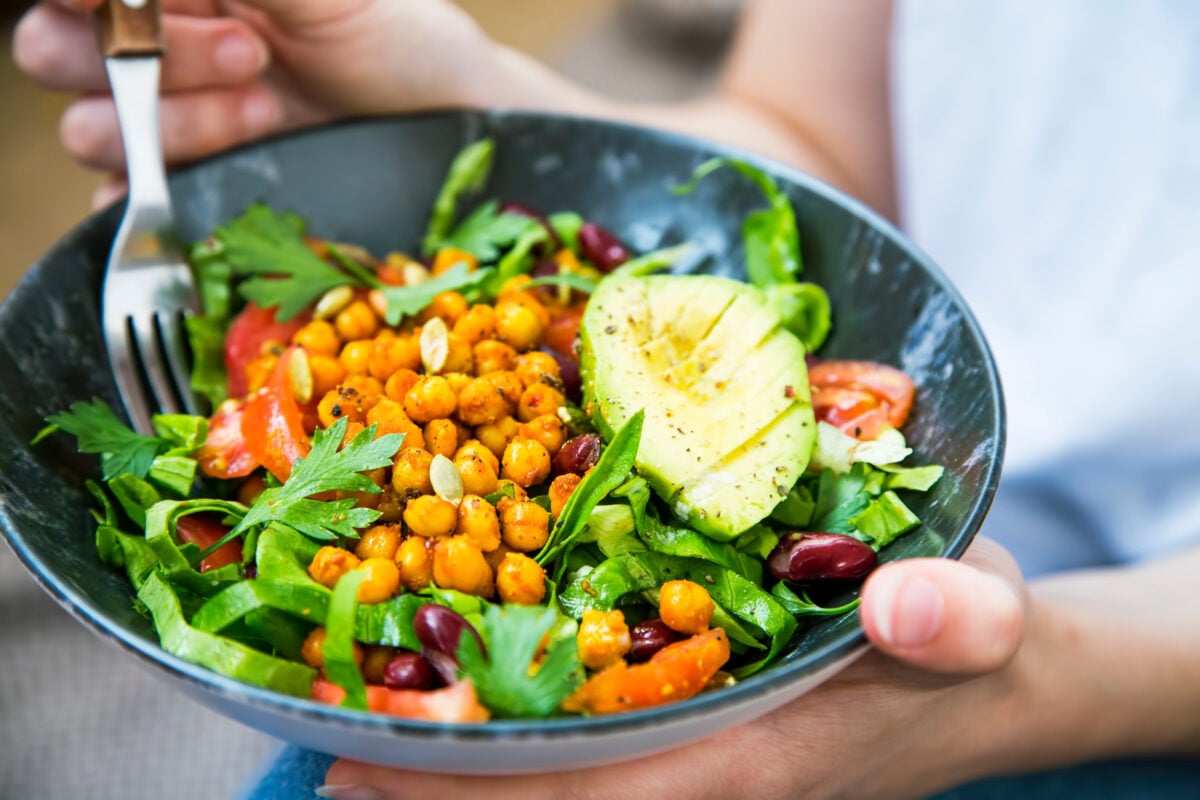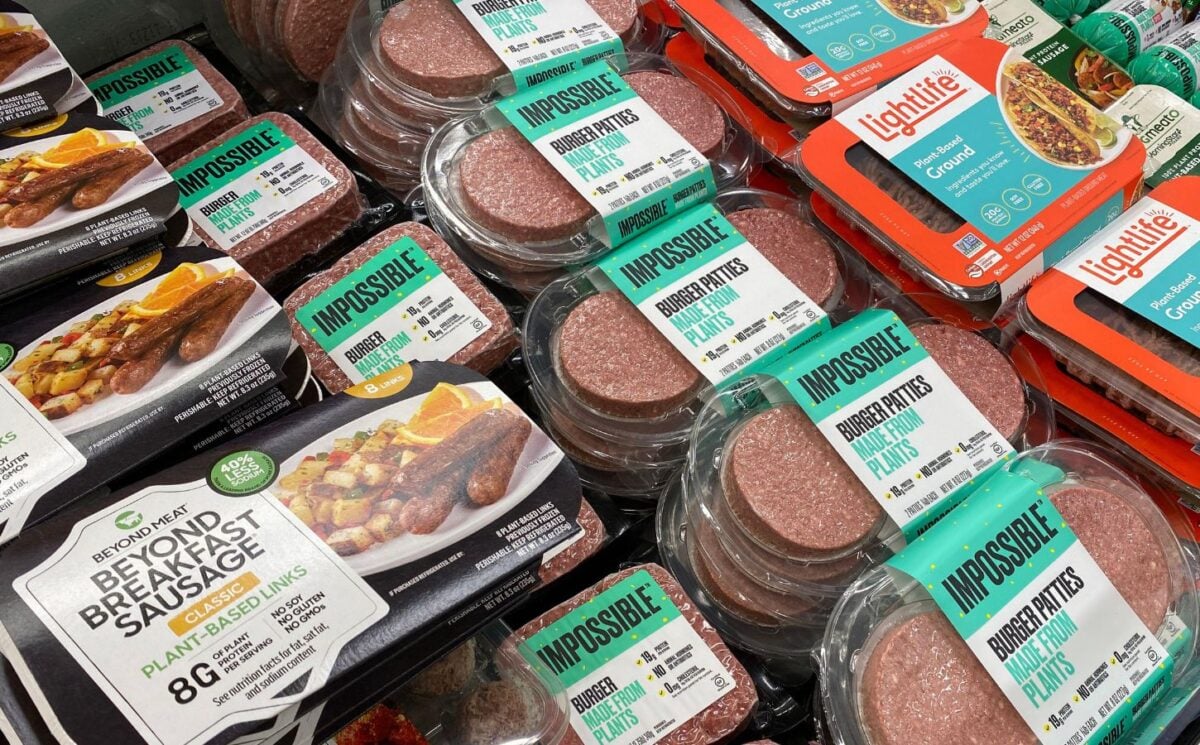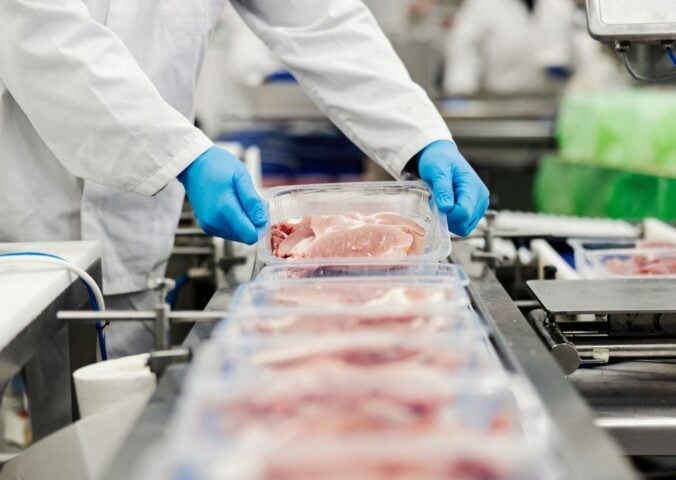A new study on whether plant-based meat alternatives have cardiometabolic health benefits has led to a condemnation of vegan food as unhealthy.
Some media coverage of the study claimed that the results show that vegan food is worse for health than meat. This is because, according to one report, study participants who ate certain vegan food had “worse” blood pressure than the meat-eating participants.
Read more: Is Oat Milk Bad For You? The Truth Behind The Claims
Given the growing evidence that plant-based diets have a multitude of health benefits over omnivorous diets, it would seem hasty to write them off altogether. So, is a plant-based diet really worse for you? Here, we factcheck the media’s coverage of the new study.
Was the study about all vegan food?
Some media reports have led with the statement that “vegan food” or “plant-based diets” are less healthy than meaty ones. But this is a misrepresentation of the diets that the participants of the study ate during the eight week trial.
The study, by researchers at the Singapore Institute of Food and Biotechnology Innovation (SIFBI), sought to compare the impact animal-based meat with plant-based meat on cardiometabolic health. Poor cardiometabolic health includes risk of conditions such as heart attack, stroke, and diabetes.
The 89 participants, who had a raised risk of diabetes, ate one of two prescribed diets. One included specific quantities of animal-based meat, while the other included specific quantities of their plant-based equivalents. In both cases, the meat and the plant-based meat replaced whatever protein the participants would normally eat. That is, the meat or plant-based meat had to be their main source of protein.
Read more: The Vegan Cheese ‘Health Warning’ – Is There Really Cause For Concern?
Specifically, the meat-eaters were provided with six frozen foods broadly categorized as beef mince, pork mince, chicken breast, burger patty, sausage, and chicken nuggets. The plant-based eaters were given the equivalents of these: Impossible Beef, OmniMeat Mince, “chicken” pieces and nuggets by the Vegetarian Butcher, Beyond Meat Burger, Beyond Meat Sausage.
What were the results?
Some of the health outcomes were slightly more negative for the plant-based group than the meat group. The participants who ate meat had “modest improvements” in blood pressure, whereas those eating plant-based alternatives did not. Plant-based eaters also had higher levels of sodium and potassium. They had higher blood glucose peaks, but mostly they remained in the normal range.
But the plant-based group saw improvement in other areas. They had a “markedly greater reduction” in dietary cholesterol and an increase in dietary fiber.
Overall, the study found that eating plant-based meat as a main source of protein “did not show widespread cardiometabolic health benefits compared with omnivorous diets over 8 weeks.” This conclusion is more moderate than media coverage suggests.
So, is a plant-based diet less healthy?

A number of large-scale studies and meta-analyses show that wholefoods plant-based diets have many health advantages over omnivorous diets. These include a lower risk of heart disease, cancer, and diabetes. The SIFBI study acknowledges that “the cardiometabolic advantages of vegetarian and vegan diets compared to omnivorous diets are well established.”
The participants in the SIFBI study did not eat wholefoods diets. Rather, their diets were designed to reflect those of people trying to replace meat in their diet with plant-based meat alternatives as their main source of protein.
For those wishing to eat a healthy plant-based diet, there are numerous sources of protein that provide lots of other nutrients too. These include nuts, beans, tofu, and grains. Appearing on Sky News Breakfast with Kay Burley, health coach Vanessa Sturman said these wholefoods “are the foods that are going to help prevent disease, feed your good gut bacteria” and “help us maintain a healthy weight.”
She added that as processed and red meat are classified respectively as carcinogenic and possibly carcinogenic, there is reason to “worry about potential disease later in life.”
Media coverage “not helpful”
Sturman said of the media coverage of the study: “saying ‘vegan food’ is not helpful. Processed vegan food is just a small part of what can be eaten.” She also said: “sometimes when people hear the word vegan food they think all of the processed foods. Everybody requires vegetables and other plant foods to be healthy – foods which are incidentally vegan.
Read more: Fermented Foods Are Having A Moment – Here Are Their Benefits
“[Y]ou can make plant based ‘meat’ from wholefoods such as tofu, tempeh and mushrooms (for example),” Sturman pointed out on LinkedIn. She said she does not recommend that “ultra-processed plant based meats feature regularly in our nutrition.” However, they “are fine to include sometimes.”
While a wholefoods plant-based diet is often regarded best from a health perspective, veganism is not about health, but about not contributing to the exploitation and slaughter of animals.






